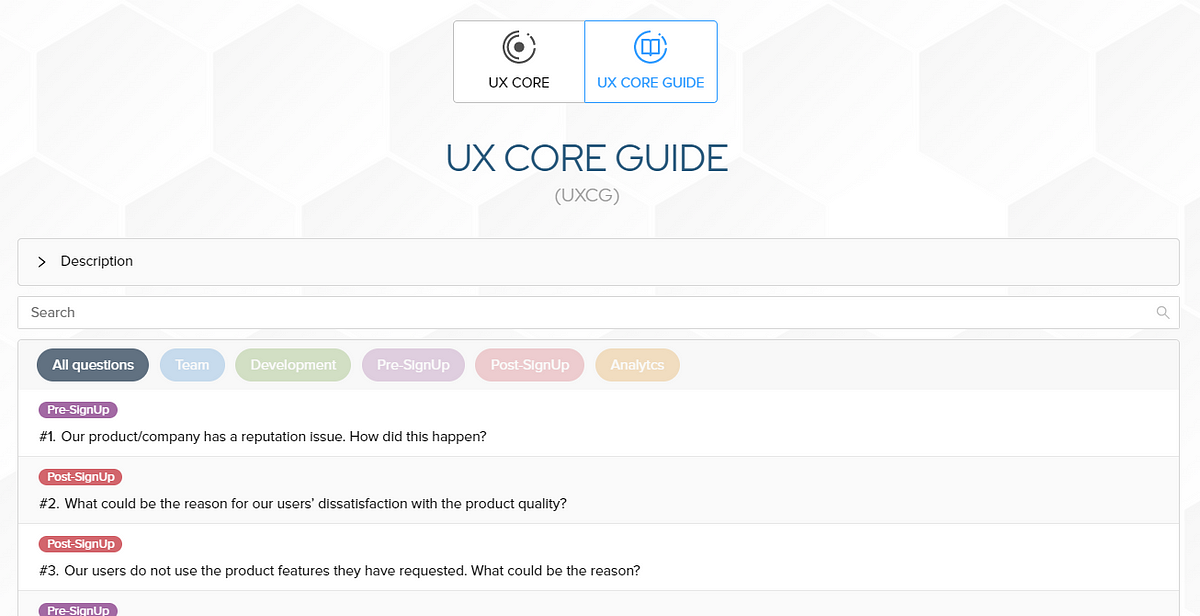Cognitive Science and User Experience: A Detailed Exploration
核心概念
The author delves into the intersection of cognitive science and user experience, aiming to provide a comprehensive tool for managers based on scientifically proven patterns of human thinking.
要約
The content explores the creation of the UX Core project, focusing on cognitive biases in product management. The author details the positive reception from various professionals worldwide, emphasizing the importance of understanding biases in decision-making processes. Additionally, the development of the User Experience Core Guide (UXCG) is discussed as a practical tool to address common product management issues through cognitive biases. The article highlights the need for equalizing knowledge access to counter manipulation by large corporations and emphasizes individual responsibility in understanding nudging strategies.
Cognitive Science and User Experience — A New Dimension of Abstract
統計
More than ten thousand people visited the project in its first weeks.
Top visitors were from Russia (35.13%), USA (20.47%), and Ukraine (11.94%).
The following biases received high ratings for "usefulness": #3 Illusory truth effect, #6 Cue-dependent forgetting, #24 Weber-Fechner Law, #84 IKEA effect, #101 Peak-end rule.
引用
"It shouldn’t be something that only tech industry knows. It should be something that everybody knows." - Tristan Harris
"You’re living inside of hardware, a brain, that was like million years old... who’s going to win in that game?" - Tristan Harris
抽出されたキーインサイト
by Wolf Alexany... 場所 medium.com 12-19-2022
https://medium.com/@alexanyanwolf/cognitive-science-and-user-experience-a-new-dimension-of-abstract-802c58bdb6e1
深掘り質問
How can individuals balance personal responsibility with corporate nudging strategies?
Individuals can balance personal responsibility with corporate nudging strategies by increasing their awareness of cognitive biases and how they influence decision-making. By educating themselves on these biases, individuals can better recognize when they are being manipulated and take steps to mitigate the impact. It is essential for individuals to understand that while corporations may use nudge techniques to influence behavior, ultimately, it is up to the individual to make conscious choices. By staying informed and mindful of their own thought processes, individuals can maintain a sense of autonomy in the face of corporate manipulation.
What are potential implications of democratizing knowledge about cognitive biases?
Democratizing knowledge about cognitive biases has the potential to empower individuals across various sectors and industries. By making this information more accessible and widely understood, society as a whole can become more adept at recognizing manipulative tactics employed by corporations or other entities. This increased awareness could lead to greater consumer protection, improved decision-making processes, and enhanced critical thinking skills among the general population. Additionally, democratizing knowledge about cognitive biases may level the playing field between large corporations and smaller businesses by equipping everyone with tools to navigate psychological influences effectively.
How can society effectively navigate ethical considerations surrounding subconscious manipulation?
Society can effectively navigate ethical considerations surrounding subconscious manipulation by promoting transparency, accountability, and education. It is crucial for organizations utilizing nudge techniques or other forms of subconscious manipulation to be transparent about their practices and intentions. Additionally, regulatory frameworks should be established to ensure that such tactics are used ethically and responsibly. Education plays a vital role in empowering individuals to recognize when they are being subtly influenced so that they can make informed decisions based on their best interests rather than external pressures. By fostering a culture of ethics and mindfulness around subconscious manipulation, society can work towards creating a more equitable environment where people's autonomy is respected.
0
